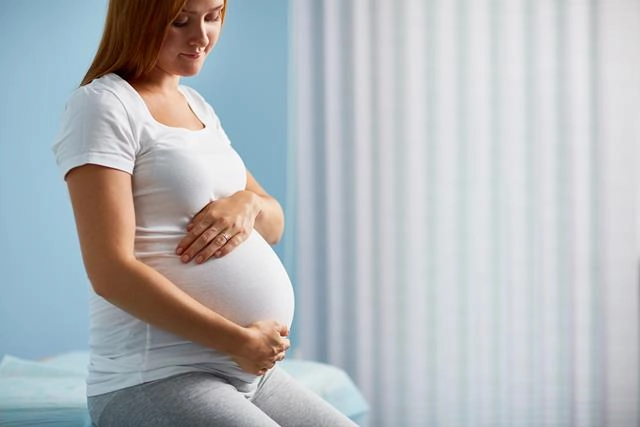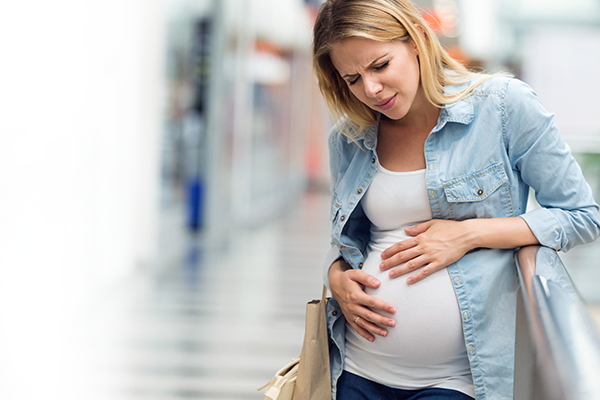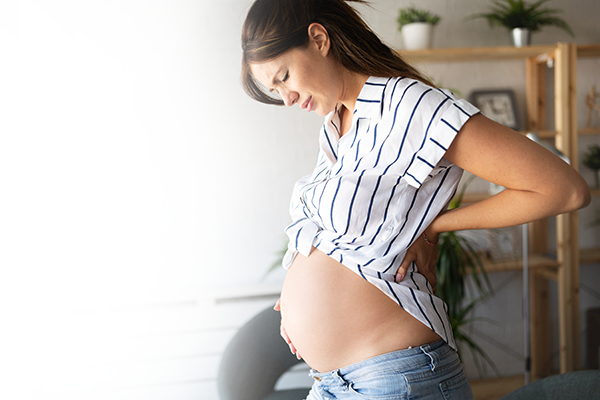Abdominal pain during pregnancy can be a symptom of many diseases. One of these is appendicitis. Its symptoms during pregnancy are not specific. How does appendicitis manifest itself and how is it treated during pregnancy?
What are the symptoms of appendicitis during pregnancy?
Appendicitis is one of the most common causes of surgical interventions during pregnancy. However, the symptoms of appendicitis during pregnancy can be non-specific. It does not always manifest itself in the form of abdominal pain in the lower right abdomen or vomiting. The more advanced the pregnancy, the more the symptoms can occur in different parts of the abdominal cavity. In later trimesters of pregnancy, appendicitis can occur with pain in the centre of the abdomen due to displacement of the appendix by the enlarging uterus. Vomiting, diarrhoea or fever are also common. In some cases, however, abdominal pain is the only symptom of the disease and therefore always requires a diagnosis, including an ultrasound scan of the abdomen.
How is appendicitis treated during pregnancy?
If symptoms of appendicitis occur during pregnancy, it is important to consult a doctor. The first stage of treatment is to make a diagnosis. This requires an examination of the abdomen. The characteristic sign of appendicitis is muscular defence on compression. Positive peritoneal signs such as the Blumberg sign or the Rovsing sign occur. An ultrasound examination of the abdomen is also helpful, in which the appendix can be visualised with signs of inflammation. However, this is not necessary to decide on an operation. If the symptoms indicating appendicitis worsen and the inflammatory parameters are elevated, the surgeons may decide to operate even without clear ultrasound findings.
Appendectomy during pregnancy
Pregnant women with appendicitis should undergo surgery in addition to antibiotic therapy. In the first half of pregnancy, the preferred method is usually laparoscopy. However, if the uterus is already very large, an “open” procedure – known as a laparotomy – is necessary. In the case of high-risk pregnancies, symptoms of sepsis or other circumstances, it may be necessary to perform an appendectomy and a caesarean section at the same time.
Complications of appendicitis during pregnancy
Untreated appendicitis during pregnancy can lead to dangerous complications. For this reason, it is important to make a diagnosis and carry out appropriate treatment, including antibiotic therapy and surgery. If there is a perforation of the appendix, septicaemia can develop, which poses a risk to the life and health of the woman as well as the developing baby.










